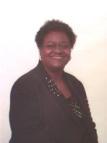|
The word testament means covenant. It refers to the relationship between God and His people. The Old Testament records the calling and history of the nation of Israel. The New Testament records the history and application of redemption obtained through Jesus Christ.
Jesus read the Old Testament in public. (Luke 4:17) He also quoted it in His teaching. (Matthew 19:4) He admonished the Jews to search it for eternal life and testimony of Him. (John 5:39)
Archeologists have made discoveries proving Old Testament accounts of events actually happened. Such discoveries include4:
- A tablet containing an account of the flood. The tablet was found in Babylon.
- Inscriptions in the Valley of Euphrates that name four kings who battled as recorded in Genesis 14.
- Nuzi tablets containing information about Sarah and Rachel giving handmaidens to their husbands.
- Egyptian hieroglyphics indicating men could write over 1000 years before the time of Abraham.
- Confirmation that the Israelites were enslaved in Egypt and left the country.
- The Hittites existed in Asia Minor and Palestine during the time the Bible states.
- Tables of Tel el-Amarna that give credulity to information in the Book of Judges.
The Old Testament or Old Covenant is divided into three parts:
- The Pentateuch.
- The Books of the Prophets.
- The Kethubim.
The Pentateuch is the first five Books of the Bible. It is also called the Law. Moses wrote the Pentateuch.
The Books of the Prophets are subdivided into two parts: the former prophets and the latter prophets. The latter prophets are further divided into major and minor prophets.
|
The Former Prophets are:
- Joshua.
- Judges.
- 1 and 2 Samuel.
- 1 and 2 Kings.
The Major Prophets are:
- Isaiah.
- Jeremiah.
- Ezekiel.
|
The Minor Prophets are:
- Hosea.
- Joel.
- Amos.
- Obadiah.
- Jonah.
- Micah.
- Nahum.
- Habakkuk.
- Zephaniah.
- Haggai.
- Zechariah.
- Malachi.
|
The Kethubim are the remaining Books of the Old Testament. They are divided into the following categories:
- The Poetic Books.
- The Megilloth.
- The Non-Prophetical Historical Books.
The Poetic Books are:
- Job.
- Psalm.
- Proverbs.
|
The Megilloth are the Books that were read at Jewish Feasts such as Passover, Pentecost and Tabernacles as well as the fast on the ninth of AB and at Purim5. The five Books of the Megilloth are:
- Ruth.
- Esther.
- Ecclesiastes.
- Song of Solomon.
- Lamentations.
|
The Non-Prophetical Historical Books are those written by men who were not prophets in office. Although Daniel had the prophetic gift, he was not a prophet in office. Therefore the Book of Daniel is placed in this category6. The four Non-Historical Books are:
- 1 and 2 Chronicles.
- Ezra.
- Nehemiah.
- Daniel.
|
It is believed Ezra and members of the Great Synagogue completed the final collection of the Old Testament canon in the fifth century B.C.7
| 
